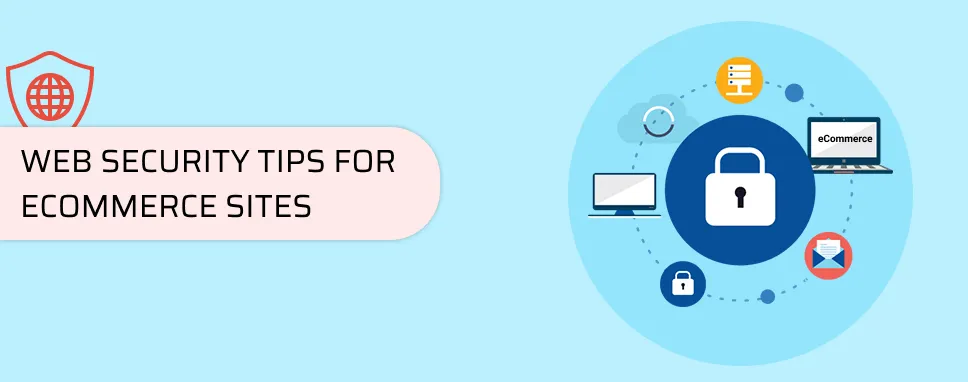4 Types of Healthcare Analytics with Examples & Success Stories
You already know how healthcare creates tons of clinical data every day. Patient visits… Labs… EMRs… doctor portals… scheduling systems… everything is generating numbers nonstop. But...
Listening is fun too.
Straighten your back and cherish with coffee - PLAY !

If you’re planning on starting your very own eCommerce website, you must think about security. You want your website to grow and flourish. In order to successfully achieve this, you have to be sufficiently protected at all times.
Sadly, many new start-ups forget about this highly important aspect. To ensure that you don’t miss out on the best security, we’re going to share with you some great ways that you can start protecting yourself right away.
But before we get to the tips, let’s take a moment to discuss just what eCommerce security actually is. If you’re new to the game, this will give you a better understanding of how it works and why it is so vitally important to your website.
Having the right security is the most important thing you can do for your eCommerce website. Not having security is putting yourself at risk for attacks and hacks. Virtual thieving is a big business in itself.
You could potentially lose more than just your money. Your whole personal identity could be ruined, resulting in years of recovery. Don’t fall into the trap of thinking it won’t happen to you. Over 14 million people are victims of identity theft each year in America alone!
Furthermore, small businesses are some of the biggest targets for eCommerce startups. Why? Because thieves prey on unsuspecting beginners who aren’t adequately protected against their attacks.
But you have options, and these options can save you from harmful, devastating attacks. As you will soon learn, you can fight back and protect what is rightfully yours. Not only will you be protecting yourself, but you’ll save your valuable customers, too.
Cyber-thieves love to get as much information as they can. It’s more potential money in their grubby little pockets. When consumers know you are safe to do business with, you’re sure to get more traffic your way
Now that you know why eCommerce security is so important, let’s explore some great ways you can start protecting your business and brand.
You’re only putting yourself and your customers at risk by opting for an unprotected web host. Sure, you might think you’re saving money. But the truth is that it’s only a matter of time before your website is breached.
In fact, you can count on attempted attacks to start from the moment you open your doors for business. It pays to protect yourself as best you can, so be sure to compare all of the different platforms that are available to you.
There are all kinds of different attacks that cyber-thieves try. Choose a web host and platform that offers a combination of protection. This will ensure that your eCommerce website has a better chance of avoiding and fighting off attempted theft.
Getting an SSL certificate is another must-have for eCommerce startups. Why? Because this helps encrypt vital data so that prying eyes can’t access it.
With an SSL certificate, only you will be able to see and access your online information. But don’t worry about missing out on this crucial step. Every eCommerce website is (basically) required to have an SSL certificate.
These are mandatory so that eCommerce websites are protected against potential attacks of theft and fraud. There are free options as well such as from Lets Encrypt.
One form of attacks are SQL injections. SQL, or Standard Query Language, is a language of coding used to get into databases. Unfortunately, it can be manipulated by cyber-thieves if your database isn’t protected.
Fortunately for you, most platforms come with software that regularly scans the database to ensure that no one is illegally accessing it. Sometimes you will have an option to scan at certain times throughout the day, keeping you aware of its activity.
This is a big one that gets many online merchants in trouble. The more data you keep, the more likely it is to get stolen. How can you manage this?
By letting someone else do it for you. There are plenty of secure payment platforms that can manage your customer’s data, leaving you out of the picture – but in a good way.
You might have to shop around to find one that’s compatible with the web host you’ve chosen. Your goal should be to find a payment platform that provides the best identity theft and fraud prevention for your valuable data.
Not only will this take a huge weight off of your shoulders, but you will know that your customer and sales information are in safe hands.
Don’t fall behind in this area. It is just as important as the previous tip to keep your website updated. Remember, cyber-thieves and hackers are always on the prowl and developing new ways to steal your information.
By consistently changing the software, you stand a better chance of keeping these hooligans out of your online information. You may have to manually install your updates, so be sure to keep a close eye on anything new that comes your website’s way.
Starting your own eCommerce website can be a fun and exciting venture. If handled correctly, you can enjoy lots of success. But it pays to take the proper precautions. Security should be at the top of your priorities.
By following these tips from Dusan at VSS Monitoring, you will be well on your way to a safe, secure eCommerce website. There are plenty of other tips to ensure your protection. We urge you to explore all of your options so that you can focus on your business and customers – and not the cyber-thieves who want to destroy what you’ve built.

You already know how healthcare creates tons of clinical data every day. Patient visits… Labs… EMRs… doctor portals… scheduling systems… everything is generating numbers nonstop. But...

Let’s keep it simple. In healthcare, trust, safety, and human dignity come first, no matter what solution you build. The same applies to AI. Today, it is everywhere, from clinics...

Let's keep it real. The whole point of building autonomous Agents is to cut manual work and keep focus on business. Approvals that used to take days can happen in hours because...